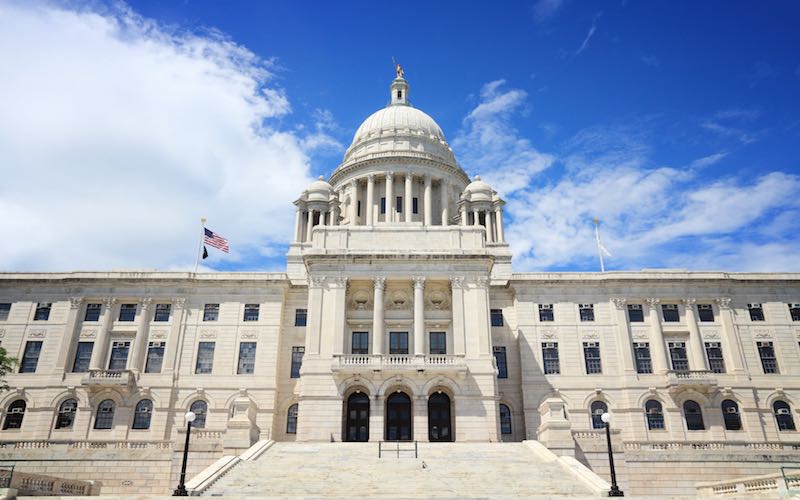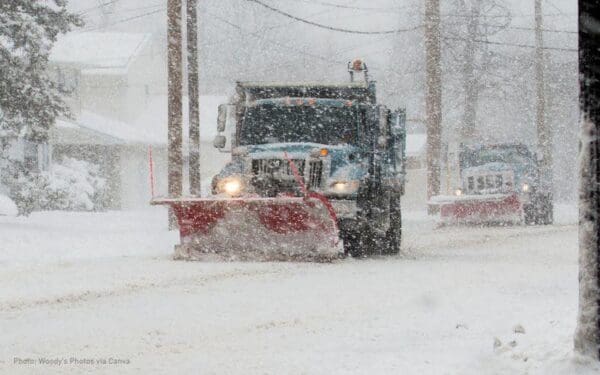
Rhode Island legislators had the chance to fill the leadership gap created by Washington. Instead, they chose inaction on issues critical to the health and well-being of Rhode Islanders. Photo: Shutterstock
In the small hours of the morning on Saturday, June 22, the General Assembly gaveled its 2025 session to a close. Well, that is unless Trump’s Big Beautiful Bill sends Rhode Island’s budget deep into the red, requiring lawmakers to come back for a Fall Special Session.
The Trump administration’s rapid changes in policy and signing of legally dubious executive orders were on the minds of lawmakers and lobbyists alike this session. This led the General Assembly to act in some areas targeted for disruption, like Medicaid coverage and reimbursement rates for doctors. But they left the fate of other key programs – such as tax credits for electric vehicles and subsidies for heat pumps – to the uncertainty and vindictiveness of the Trump administration.
The federal government has hastily retreated from its former leadership position in addressing the climate crisis, embodied in the Infrastructure Investment and Jobs Act and the Inflation Reduction Act. Rhode Island’s elected officials had a chance to fill this leadership vacuum in 2025, but sadly they chose the path of inaction. This is particularly devastating for our communities that are feeling the impacts of climate injustice and have the least ability to protect themselves.
CLF’s Rhode Island team will renew our efforts in 2026, but let’s first take a quick look at how some of our 2025 legislative priorities fared:
- Utility Affordability. Over the past year, there has been no lack of outrage over the ever-increasing cost of gas and electricity service from Rhode Island Energy. This legislation would have limited utility bills by prohibiting utility companies from charging customers for unreasonable expenses, like lobbying expenditures and corporate jet travel for shareholder meetings. It would also have capped the amount of new money they can request each year for infrastructure investment.
Disappointingly, the legislature failed to seize the opportunity to prevent ever-higher utility bills through these proposed common-sense changes. Instead, legislators gave Rhode Island Energy new authority to charge all customers for nuclear energy, including those customers who have chosen their own energy supplier or participate in a community aggregation program. - Building Decarbonization Act. The ways we heat and power our buildings are a significant source of carbon pollution in Rhode Island. In its original form, this game-changing legislation addressed that critical issue by requiring large buildings to track, report, and reduce their energy usage in line with what is required by Rhode Island’s Act on Climate law. It also would have required new buildings to either use or be designed to easily transition to all-electric heat and appliances.
As part of his proposed budget, Governor McKee put forward his own version of this bill, which required only tracking and reporting of energy usage. Even this would be an excellent first step towards reducing carbon pollution from buildings. In the end, the House aligned itself with the Governor’s budget proposal, passing a bill that requires only tracking and reporting – not reducing – energy usage.
The Senate, however, wouldn’t even go that far. Senators instead opted to ignore the overwhelming and unambiguous need to start electrifying our buildings. They declined to vote on the bill and offered no justification for their refusal to consider even the modest bill passed by the House. - Public Transit Funding – In the Governor’s proposed budget, the Rhode Island Public Transit Authority (RIPTA) faced a catastrophic budget shortfall. That shortfall would have caused layoffs and destabilizing service cuts for the thousands of people who rely on public transit every day. With the passage of the final budget, RIPTA is facing a smaller, but still significant, deficit of $11 million in 2026. We must take some solace in the fact that the House pulled together $15 million in new funding for the agency through reallocating the gas tax – though the agency will still consider up to 90 layoffs and a 20% service reduction.
- Climate Superfund. Following in the trailblazing footsteps of Vermont and New York, this law would allow Rhode Island to hold fossil fuel companies accountable for the harms and damages they have caused the state’s communities and residents. We continue to see increased flooding, stronger storms, and more frequent heat waves – which the fossil fuel industry knew for decades would result from ongoing use of their products. The Superfund bill would put the responsibility of paying for that damage on the companies that caused it, rather than where it rests now – on the shoulders of hardworking Rhode Islanders. We will push for the General Assembly to reconsider this critical legislation in 2026 as the costs of the climate crisis mount.
- Bottle Bill. Rhode Island is one of two New England states lacking a bottle deposit system aimed at reducing the state’s plastic waste. Following 18 months of work by a legislative study commission to evaluate such a system, two potential bills emerged. There was “the good” bill, which would have seen Rhode Island join other New England states with strong bottle bills. Then there was the “the bad” bill, which would have adopted a weak producer responsibility program for packaging and paper. It’s no surprise that the beverage industry preferred the “bad bill.”
Despite its own recommendations in support of a “good” bottle bill, the General Assembly instead chose the “ugly” option. They followed the time-honored tradition of mandating that a consultant be hired to do yet another study to tell us what we already know. Passing “the good” bill should be an easy decision: Polling shows a majority of Rhode Islanders support a strong bottle bill.
Ultimately, Rhode Island’s elected leaders failed to rise to the moment. They put the unfounded fears of industries that profit from pollution before the needs and concerns of Rhode Islanders of all stripes. We are disappointed to say the least.
You – our supporters and constituents – however, did rise to the moment, making your voices heard on the issues that matter to you most. And while we are disappointed, we are not defeated. That’s why we must continue to raise our voices – in every election and every legislative session – until the power of the people prevails over corporate interests in our own little corner of New England.



